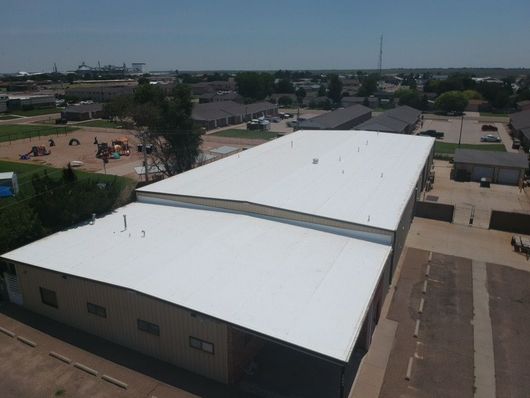For any commercial property, the roof is essential. It not only shields your building from the elements but can also help lower repair expenses and boost energy efficiency. In this guide, we’ll delve into the best commercial roofing materials and explain why investing in quality roofing is key to ensuring the success of your property.
Assessing Your Commercial Roofing Requirements
Commercial roofs face different challenges compared to residential roofs. Factors like climate, building structure, and the nature of your business operations all influence what type of roofing system is ideal. Whether you're managing a warehouse, an office building, or a retail store, understanding your specific needs will ensure that you choose the right roofing solution.
The Best Materials for Commercial Roofs
There are a few top roofing materials commonly used for commercial properties. Each comes with its unique advantages, depending on your needs and budget.
Option 1: Metal Roofing
Metal roofing is a popular option for commercial buildings due to its durability and energy efficiency. Made from materials like steel or aluminum, metal roofs can withstand extreme weather conditions and provide excellent protection against leaks. They are also highly reflective, which can lower energy costs by reducing the need for air conditioning in warmer months.
2. Flat Roofs
Flat roofing systems are popular for commercial buildings due to their affordability and simple installation. These roofs are particularly suitable for buildings with contemporary architecture. Materials like TPO, EPDM, and PVC are commonly used, offering excellent waterproofing and insulation. Proper maintenance and drainage are essential for their longevity.
3. Shingle Roofing
Shingle roofing is not as common for large commercial buildings, but it can be a good choice for smaller properties or those that need a traditional look. Asphalt shingles are affordable and come in various colors and styles, though they don't offer the same longevity as metal or flat roofs.
Roof Installation Process and Maintenance Tips
Once you've selected the right material for your commercial roof, the next step is installation. Hiring an experienced, licensed roofing contractor ensures the job is done correctly. Proper installation is crucial for preventing leaks and maximizing the lifespan of your roof.
Regular maintenance is also essential. Inspections should be done at least twice a year, especially after harsh weather events. Look for signs of damage, such as missing shingles, cracks, or pooling water. Cleaning gutters and removing debris can also prevent long-term damage and extend the life of your commercial roof.

The Importance of Investing in High-Quality Roofing
Your roof is a long-term investment. A quality roofing system provides protection against leaks, which could cause expensive damage to your building and inventory. It also enhances energy efficiency, making your property more environmentally friendly and reducing operating costs. Ultimately, a well-maintained roof can improve your building's value and ensure that you’re not facing costly repairs down the road.
Final Thoughts: Selecting the Best Commercial Roofer
Selecting the right roofing contractor is crucial to ensuring your roof is installed correctly. Choose a licensed and experienced professional who specializes in commercial properties and can help you choose the best material. A good roofer will also assist you with the installation and ongoing maintenance to keep your roof in optimal condition.
Thinking about upgrading your commercial roof? Get in touch with us today for a free consultation, and let us guide you through the best roofing options for your property.
#CommercialRoofing #RoofingMaterials #BusinessProtection #MetalRoofing #FlatRoofing #RoofInstallation #EnergyEfficiency #RoofMaintenance